Delyse self advocates her way from immigrant to a university student
Meet Delyse
● Mother of 12-year-old daughter
● Newcomer to Canada
● Bachelor of Arts in Communications
● Student debt of $40 - $45,000
● Emergency savings of 2,000 that she will dip into when OSAP funds are low
Saying that Delyse has overcome many challenges is an understatement. Delyse was born in a country where violence against women is still prevalent; in that country nearly 1 in 5 women experience sexual violence perpetrated by someone other than a partner and intimate partner violence is even higher. Delyse herself faced sexual violence as a child and young teenager. Delyse was committed to finishing school, breaking the cycle of violence and building a good life for herself and later for her baby daughter.
Delyse was raised by a combination of relatives and although her family struggled financially, her father was able to send money home from the US to pay for her school. At 18 she started volunteering at a local radio station and immediately loved it. Working without compensation presented challenges and while Delyse sometimes had difficulty finding bus fare, she still chose to go as she enjoyed having something to focus on. When she finished high school, the radio station hired her.
After 7 years of working, Delyse’s boss resigned and Delyse became the interim manager. Two years into her role as interim manager, the station hired a manager with more education but less experience. They asked Delyse to train the new manager even though they were paying Delyse less than the new person. Delyse felt cheated, undervalued and disrespected.
Delyse came to Canada to make a better life for herself and her young daughter. Delyse left her daughter with a family member back home while Delyse tried to get settled in Canada. It was overwhelming to arrive in Canada with nothing and to face such limited job options, but Delyse never lost sight of her goals to earn enough to go back to school and to bring her daughter up in Canada.
Her first job was as a weekend babysitter. She was initially told she was going to be paid $160 but when she finally received her pay, the family had paid her only $100. Delyse felt that she had no power to complain. She soon left the family and got a job as a cleaning lady, in which she would work from 5:30 am to 5:30 pm 5 days a week. At the end of the first month, she was paid only $350 which was barely enough to pay for her rent and significantly less than she needed to make to be able to afford to go back to school
In the meantime, Delyse started having issues with her landlord. After about 3 years of living in the basement with her aunt, collectively paying $700 a month, they started to have no heat. The landlord started to say the hydro bill was too high and the heat and hot water started to break through the winters.
But Delyse was learning how to advocate for herself and learned how to process a complaint. It was then that she heard a bridging program at a nearby university. She used her self-advocacy skills to learn more about the requirements, the value and benefits for her. She also spent time thinking about whether or not this was the right move.
As she had been thrown into new situations her entire life, Delyse, very much valued the transition supports offered in the bridging program. She applied for OSAP, quit her job as a cleaner, moved close to campus, started the process of moving her daughter here. In September of that year, Delyse began her university career at the age of 29.
Delyse was finally reunited with her daughter in Canada and began the process of dealing with the challenges of introducing a 12 year old into Canadian culture.
Delyse finished her undergraduate degree with just over $40,000 in OSAP debt. Now her next big challenge is to decide whether to continue her education and apply for a Master’s degree or work for a while before applying to do post-graduate studies.
Looking at Delyse’s story, you can really see how 3 things made her successful: 1) a focus on her dream of being economically independent and building a better life, 2) a commitment to building her capacity which enabled her to advocate for herself, push her dreams forward, and recognize what levers were available to her, and 3) an ability to problem solve the myriad of challenges that came her way.
From a systems perspective, when I listen to Delyse, I sadly realize she is not alone. There countless other women in similar a position with no power and no clarity on how to get out. They are facing a “ Whack-A–Mole” series of problems.
Unfortunately lack of financial resources exacerbates these challenges. Without alternatives, many women get stuck in relationships with intimate partner violence. Without the knowledge of how to advocate for themselves, many youth may be vulnerable to abuses in the workplace and in the home.
How might we create a society where individuals have the economic resiliency necessary to problem solve their way through life’s many challenges? How might we create a society where all individuals have access to meaningful work, the ability to earn a living wage and pay for investments in education and individual advancement?
